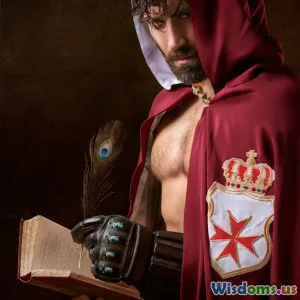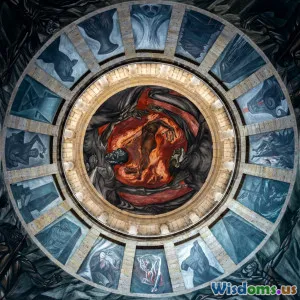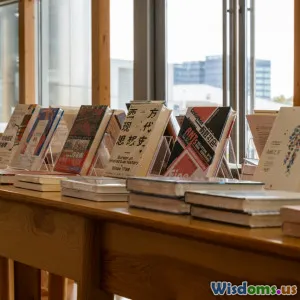
Why the Epic of Gilgamesh Still Resonates in Modern Storytelling
8 min read Discover why the Epic of Gilgamesh continues to inspire modern storytelling with timeless themes and universal human experiences. (0 Reviews)
Why the Epic of Gilgamesh Still Resonates in Modern Storytelling
Introduction
Imagine a story thousands of years old that continues to captivate audiences and inspire creators today. The Epic of Gilgamesh, one of humanity's earliest known literary masterpieces, has survived millennia to remain profoundly relevant. This ancient Mesopotamian tale, written on clay tablets over 4,000 years ago, is not just a relic of past civilizations—it is a living narrative influencing modern storytelling across diverse media. But why does this archetypal epic resonate so deeply in today’s cultural landscape? What timeless human truths has Gilgamesh captured that still speak to contemporary audiences?
This article dives into the enduring appeal of the Epic of Gilgamesh, examining its fundamental themes, literary significance, and lasting impact on modern narrative forms. By unpacking its key messages and exploring examples of its influence, we gain insight into the powerful continuity of storytelling across ages.
The Ancient Story With Timeless Themes
Friendship and Human Connection
At its heart, the Epic of Gilgamesh explores the transformative friendship between Gilgamesh, the king of Uruk, and Enkidu, a wild man created by the gods to challenge him. Their bond humanizes the mighty Gilgamesh, moving him from a selfish tyrant to a more empathetic leader. This dynamic demonstrates the universal theme of human connection—how companionship fosters growth and self-awareness.
Modern narratives frequently echo this theme. Films like The Lord of the Rings highlight loyal friendships mirroring Gilgamesh and Enkidu’s camaraderie. Even beyond literature and cinema, human connections remain a cornerstone of compelling storytelling, satisfying audiences’ innate desire for relatable emotional experiences.
The Quest for Immortality and the Human Condition
Another central driving force in Gilgamesh’s journey is his confrontation with mortality in the wake of Enkidu’s death. Unable to accept his own impermanence, he seeks everlasting life but ultimately learns that immortality is an impossibility for mortals. Instead, he finds meaning in legacy: the lasting impact of his deeds and the city he rules.
This poignant exploration of mortality pre-dates and informs many later works, including Shakespeare’s meditations in Hamlet and modern takes like The Shawshank Redemption. The universal anxiety around death, and the search for meaning in life, are timeless themes that continue to resonate deeply with audiences.
Heroism and Personal Growth
Gilgamesh’s journey symbolizes the archetypal hero’s path—moving from arrogance and brute strength toward wisdom and humility. His evolution portrays the human capacity for growth through trials and introspection. Such a narrative remains relevant as it embodies the transformative potential that many seek in their personal lives.
Modern storytelling, especially in the fantasy and adventure genres, replicates this journey structure. Joseph Campbell’s concept of the monomyth, or “hero’s journey,” echoes Gilgamesh’s odyssey, underscoring the epic’s foundational role in narrative traditions.
Real-World Influence and Legacy
Literature and Popular Culture
The influence of the Epic of Gilgamesh is evident in countless works. Its themes have permeated novels, poetry, and graphic novels. For example, the science fiction writer Philip Jose Farmer cited Gilgamesh in crafting immortal heroes grappling with eternal life.
Moreover, the Epic’s flood narrative parallels the biblical story of Noah, illustrating its foundational place in Western and Middle Eastern mythologies. This intertextuality enhances its universal relevance, connecting ancient storytelling to religious and cultural traditions recognized worldwide.
Film and Television References
Several modern films and television shows draw direct inspiration from Gilgamesh. The 2014 film Noah channels the flood myth from the Epic, and the graphic novel and film 300 echo the heroic ethos central to Mesopotamian epics. Japanese anime such as Fate/stay night incorporate Gilgamesh as a character, emphasizing his enduring cultural imprint.
These adaptations demonstrate the Epic’s adaptability across formats and cultures, ensuring its longevity in the global imagination.
Educational and Psychological Relevance
Beyond entertainment, the Epic of Gilgamesh holds educational value. It introduces students to early human civilization and the origins of storytelling, offering insights into ancient perceptions of life, death, and leadership.
From a psychological perspective, Carl Jung and Joseph Campbell both drew on myths like Gilgamesh to understand archetypes and the collective unconscious. This makes the epic a useful tool in exploring human psychology and cultural narratives.
Why Does Gilgamesh Still Matter?
The persisting appeal of the Epic of Gilgamesh stems from its embodiment of shared human experiences. It speaks to fundamental questions about existence, purpose, and relationships. Unlike stories limited by historical or cultural contexts, Gilgamesh touches on intrinsic truths transcending time and language.
In a world increasingly consumed by rapid technological change and fragmented stories, the Epic reminds us of narrative’s power to connect humanity across millennia. It demonstrates how stories fuel empathy, provide moral guidance, and offer reassurance in the face of life’s uncertainties.
Conclusion
The Epic of Gilgamesh stands not just as an archaeological artifact but as a vibrant narrative that continues to inspire creators and audiences over 4,000 years later. Its themes of friendship, mortality, heroism, and legacy are woven into the fabric of modern storytelling. From literature and cinema to psychology and education, its echoes affirm the continuity of human concerns and the enduring power of myth.
As readers and storytellers, revisiting Gilgamesh enriches our understanding of narrative’s roots and reminds us why we tell stories—to grapple with the human condition, find connection, and search for meaning. In doing so, the ancient king of Uruk remains immortal in the stories we continue to share.
By appreciating the ancient wisdom of the Epic of Gilgamesh, we uncover lessons that empower and inspire our own journeys, highlighting the timeless dance between myth and life.
Rate the Post
User Reviews
Popular Posts



















